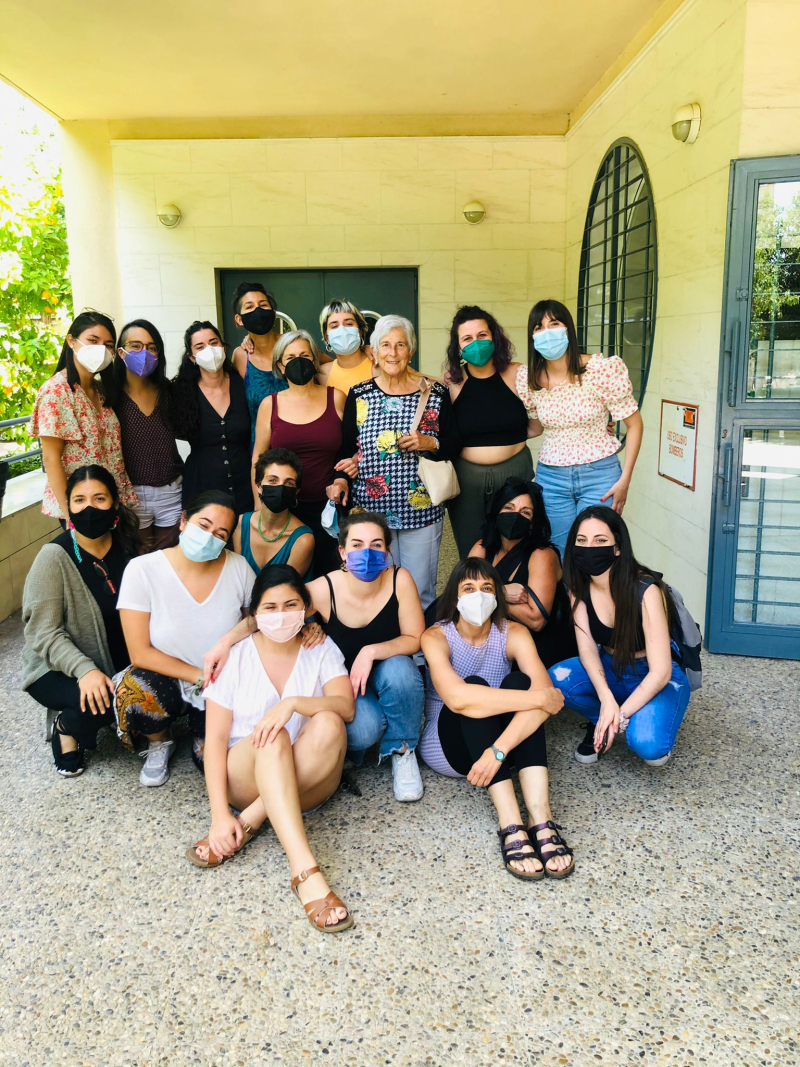

Last April 8th, our beloved professor and friend Teresa del Valle, Emeritus full Professor at the University of the Basque Country/ Euskal Herriko Unibertsitatea, passed away. Since the GEMMA’s first edition (2007/2008) until the 2019-2020 academic year, Teresa del Valle has been a visiting professor in our programme in the Feminist Methodologies module coordinated by Prof. Carmen Gregorio Gil. Nevertheless, her collaboration with the UGR Women's and Gender Studies Institute traces back to the 1980s when she participated in the 1st Women Studies Interdisciplinary Meeting in 1988, where she presented the plenary lecture on “El momento actual en la antropología de la mujer: modelos y paradigmas. El sexo se hereda, se cambia y el género se construye” (“The present time of Women’s Anthropology: models and paradigms. Sex is inherited and changes; Gender is constructed”). This plenary was a pioneer work which laid the foundations of Feminist Anthropology in Spain. She has also been a lecturer in the Women's Studies Doctoral Programme at the UGR, as well as in the four editions of the Expert Diploma in Gender and Equal Opportunities and many other events and activities organised by the Women's and Gender Studies Institute professors.
Teresa has left us at the age of 88 which has allowed her to observe with great satisfaction how her School of thought extended beyond the Basque Country, her homeland, acquiring a fundamental importance at the University of Granada as attested by the recent celebration of the 2nd Conference on Feminist Anthropology at UGR taking over from the 1st Conference in Donostia. It is hard to imagine any research line on Feminist Anthropology at the University of Granada without her mentorship (Gregorio Gil 2023. “Teresa del Valle Murga, maestra y mentora: precursora de la Antropología feminista en el Estado Español”, in Pena, Corrochano y Téllez (eds.) Maestras de la Antropología en España. Comares: Granada). Her legacy will be constantly revisited not only from Social Anthropology, but also from the wider range of disciplines Teresa established fruitful dialogues with: Art History, Literature, Contemporary History, Urbanism, Philosophy, Pedagogy and, of course, Gender Studies.
We won’t walk the streets of Granada again, drink a hot chocolate in Bib-Rambla; go to the Saint Cecilio Romería via the Sacromonte road; visit the spice store in Puentezuelas Street; drink a camomile with some drops of anisette in it at Carmen de la Victoria; feel the silence of its gardens as we contemplated the Alhambra together; smell the scent of the orange blossoms and the jasmine flowers while walking around the Albayzin neighbourhood; vibrate when touching the old books in the Hospital Real Library; take a walk around the dusty Sacromonte caves; or feel the night again while enjoying a concert in the Alhambra Patio de los Aljibes. We will certainly walk those roads alone or with other life partners but they won't be the same.
She left us a precious legacy that the students and teachers of the GEMMA’s transnational community have been able to enjoy and will keep enjoying in the years to come by reading her extensive work or hearing the recordings of her plenaries and interviews. Thanks to her, we have learnt how to look at space,time, relationships,power, rituals, memory, fear,or architecture from the complexity of a feminist and anthropological gaze. We have also learnt how to take on new challenges, because Teresa passionately believed on the power of social Anthropology for social change. Anthropology, in Teresa's words, was a science and an art: “It is an art because it includes individual and collective creative processes. It comprises spontaneity, the phantasmagorical, the ambivalences between the real and the unreal words. It encloses the unpredictability of human behaviour, the potentiality of generating new contents and new meanings in view of the new technical advances or the appearance of new problems as a result of destruction or decadence” (Our translation. Full article here). It is future too.
From the open-mindedness, sensitivity, generosity and attentive listening that she mastered, Teresa transmitted her vivid and enfleshed passion for knowledge to us. We learnt from her that anthropological way of being - as she loved to call it - for living.
We are infinitely grateful to you, Teresa.
Carmen Gregorio Gil, Professor at the Department of Social Anthropology and Adelina Sánchez Espinosa, Professor at the Department of English Studies and GEMMA Consortium Coordinator (GPS Adelina, as Teresa del Valle used to called me in affection).

